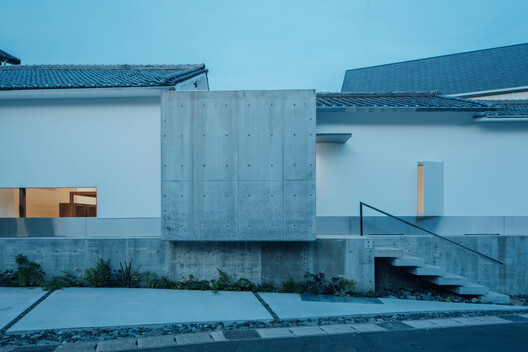Brussels slashes the EU farm budget, calls it a win. Farmers call it a declaration of war.
BRUSSELS — The European Commission says it’s safeguarding farmers. Farmers say Brussels is stabbing them in the back.
Commission President Ursula von der Leyen unveiled plans on Wednesday to cut funding for the EU’s Common Agricultural Policy from €386.6 billion to just €300 billion after 2027 as part of a sweeping revision of the bloc’s next long-term budget.
That’s a headline reduction of more than 20 percent — before even accounting for inflation.
Von der Leyen, presenting her budget proposal, denied that farmers would lose out and highlighted the funding available to rural communities under other spending programs.
“Agriculture will be strengthened. What we have safeguarded are the direct payments to farmers,” she told a news conference. “That is one part that is clearly safeguarded and secured.”
She left Agriculture Commissioner Christophe Hansen to defend the cuts that he himself spent months fighting against behind closed doors.
“In the money that is coming into the pockets of farmers, there is no cut,” he insisted when pushed on the reduction at a press conference, arguing that the missing billions are accounted for in other parts of the budget.
Speaking earlier before an angry European Parliament agriculture committee, Hansen said that the €300 billion figure is not a ceiling but a floor, the minimum that EU countries must spend on agriculture over the next seven-year budget cycle. The money, he stressed, will be legally ring-fenced and protected from being siphoned off to other priorities like defense or competitiveness.
“No other policy area has this level of protection,” Hansen told MEPs. “This guarantees stability and predictability for farmers.”
Welcome to Vonderland
Farmers aren’t convinced.
While Hansen tried to calm tempers inside the Parliament, hundreds of farmers rallied outside the EU institutions in Brussels, waving flags and chanting slogans like “Welcome to Vonderland” — a jab at von der Leyen for what they see as the betrayal of Europe’s farm sector.
“They’re dismantling 70 years of European history,” fumed Massimiliano Giansanti, the head of Copa, the powerful EU farming lobby, referring to the CAP’s post–World War II origins.
For many of Europe’s farmers, the CAP isn’t just a subsidy system, it’s a birthright.
“They want to have a declaration of war to the farmers. OK, we are ready,” Giansanti added.
This time, there were no tractors, just flags, chants and an artificial intelligence-generated song blasting about farming subsidies as protesters marched from the Parliament to the Berlaymont, the Commission’s headquarters.
What’s really being cut
Hansen’s defense rests on a controversial distinction.
He told MEPs that not all of the current €386.6 billion CAP budget actually lands in farmers’ pockets. Of that amount, some €291.1 billion is earmarked for income and sectoral support, while another €95.5 billion is meant to support rural development programs.
In reality, most of the rural development funding still goes into farmers’ pockets, through investment support, funding for environmentally friendly farming and extra support for those working in challenging natural areas, like mountains.
Copa-Cogeca, which brings together the EU’s main farmers’ and agri-cooperative lobbies, branded the day a “Black Wednesday for European agriculture.”
In a blistering statement, it accused von der Leyen of secretly preparing a “radical, unilateral and cynical” cut while paying lip service to dialogue.
“We know exactly who will be hit hardest — family farms, the cornerstone of our model,” the group said.
Inside the Parliament, lawmakers from across the political spectrum piled on. “Don’t try and sell us a 25 percent CAP cut as a success story,” said Herbert Dorfmann, a veteran of farm budget fights from the center-right European People’s Party, von der Leyen’s own political family.
Fellow Italian, Socialists and Democrats lawmaker Dario Nardella, was equally blunt: “Maybe I’ve misunderstood, but €300 billion is not more than €386 billion. How is this a success story?”
Hansen pushed back, insisting member countries can always top up their national farm envelopes, but few believe cash-strapped governments will find the extra money.
“They’ve got us tied down,” said Álvaro, a farmer from Toledo who only gave his first name, summing up the mood on the protest line. “I wish we could survive without subsidies, but we need them. The Spanish countryside and European agriculture are being ruined from here.”
By early evening, the farmers had packed up their flags and gone home.
But the political fight over Europe’s farm budget is just getting started.




















:quality(85):upscale()/2025/10/15/765/n/1922398/29c37a6e68efd84bb02f35.49541188_.jpg)
:quality(85):upscale()/2025/10/09/670/n/1922283/00b944c868e7cf4f7b79b3.95741067_.jpg)
:quality(85):upscale()/2025/09/09/891/n/1922283/7222624268c08ccba1c9a3.01436482_.png)
:quality(85):upscale()/2023/10/03/668/n/1922283/1f15c8a9651c2d209e5eb5.32783075_.jpg)
:quality(85):upscale()/2025/08/14/650/n/1922283/470aeb83689df49cdc1bb6.14084110_.jpg)













:quality(85):upscale()/2025/07/10/708/n/1922398/8fe2782e686fe372b38bf8.29984296_.jpg)
:quality(85):upscale()/2025/01/08/844/n/1922398/cde2aeac677eceef03f2d1.00424146_.jpg)

